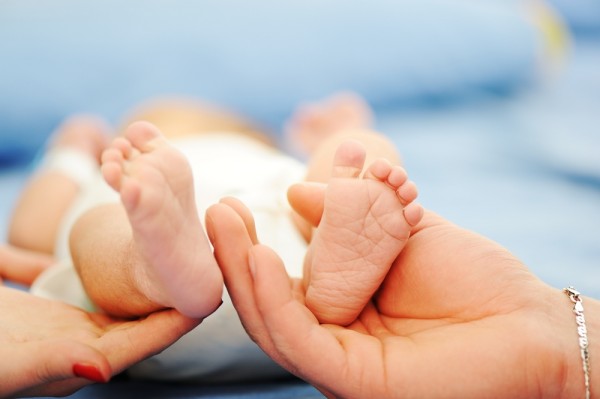“When a child is discovered to have a life-limiting condition after birth, we do not suggest to families
that their grief and devastation will be helped if we hasten death.
Why do we do so before birth?”
This question, asked last week by Breda O’Brien in the Irish Times, is one pro-life advocates have been asking for a very, very long time. And it is one which more disability rights advocates are also beginning to ask, as they see what appears to be the increasing discrimination against preborn children with prenatal diagnoses.
O’Brien tells the story of Dr. Marty McCaffrey, a “clinical professor in neonatal-perinatal medicine at UNC Chapel Hill” who, upon attending a disability conference in 2009, discovered that “fatal fetal abormalities” might not be so fatal after all. McCaffrey noted that many of the children attending the conference with their families had conditions that most in the medical community label as ‘incompatible with life,’ and yet, these children were very much alive. When McCaffrey looked for an explanation on the matter, O’Brien says he found something “disturbing, a medical version of the self-fulfilling prophecy. He dubbed it ‘lethality begets lethality’. In short, if children with trisomies were expected to die, they did – in far greater numbers.”
O’Brien goes on to say that “US research published in 2016” found (emphasis added):
Some 36 per cent of children with a prenatal diagnosis lived less than 24 hours and 47 per cent were discharged home, compared with 1 per cent who lived less than 24 hours and 87 per cent who were discharged home when the condition was discovered after birth.
When discovered prenatally, generally speaking very limited interventions were offered, often excluding hydration. When discovered after birth, interventions included oxygen, ventilation, tube feeding and intravenous fluids.
The implications of such jaw-dropping statistics should shock us. O’Brien points out that decades ago, the life expectancy for children born with Down syndrome was about nine years. Today, it is 60 — and this, she says, is because families began to advocate for their children with disabilities in the 1960’s, and as a result, the “humanity and equality of people with intellectual disability began to be recognised more.” Today, for preborn babies diagnosed with Down syndrome as well as those diagnosed with more severe disabilities, families find a “disgraceful lack of support” because of the highly subjective “quality of life” argument, which implies that such children are not worth fighting for. To refuse to provide the same level of care for a child diagnosed prenatally as one would provide for a child diagnosed post-birth is not medicine. It is a kind of willful negligence — an appalling discrimination which leads to death.
Along these lines, as Live Action News’ Cassy Fiano reported recently, more women receiving prenatal diagnoses of Down syndrome for their children are being pressured to abort. While this has been going on for a number of years, it seems that now, the medical community’s dire predictions of poor quality of life and potential serious health problems just aren’t enough; today, women in the Netherlands are being told that they have a “moral duty” to abort children with disabilities. Iceland was recently reported to have “eliminated” Down syndrome in the country, but it was quickly discovered that the country hadn’t eliminated Down syndrome at all; it had eliminated the preborn babies who were diagnosed with it — a deliberate search and destroy mission on human beings with a specific genetic condition.
In the face of severe pressure to abort when faced with conditions which are thought to be fatal, some families still bravely choose life for their babies, for as long as they have them — regardless of how long their children survive outside the womb. Others, claiming a desire to end their children’s perceived suffering, choose to abort. And again, Breda O’Brien’s question comes back to us: Why would we suggest such a thing before birth if we would never suggest such a thing after? Perhaps our society has a misguided belief that eliminating pain and suffering is the most important thing — but abortion doesn’t eliminate pain or grief. It simply eliminates human beings.
And the ease of abortion access often causes even the medical community to view preborn children with disabilities as “less than” — as those whom they’ve already given up on, before they even emerge from the womb. If “lethality begets lethality,” as McCaffrey says, perhaps it’s time we start looking through the lens of hope instead.







